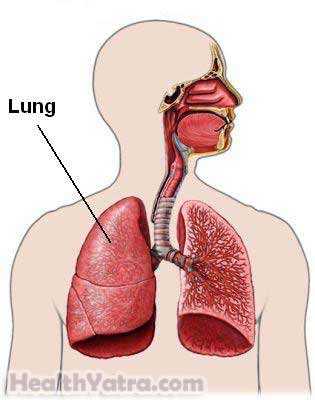Definition
Arsenic toxicity occurs when a person is exposed to arsenic. Arsenic is a naturally occurring element in the earth’s crust. It has no smell or taste. If you suspect you have been exposed to arsenic, contact your doctor immediately.
There are two primary forms of arsenic:
- Inorganic arsenic—arsenic combined with oxygen, chlorine, or sulfur; found in the environment
- Organic arsenic—arsenic combined with carbon and hydrogen; found in animals and plants
Inorganic arsenic is usually more harmful than organic arsenic.
Causes
Arsenic occurs naturally in soil and minerals, and may enter the air, water, and soil. It is also used:
- To preserve or pressure-treat wood (this use is being phased out except for specific applications such as railroad ties and utility poles, but old stocks may still be around and pose a risk)
- As a pesticide
- To produce glass
- In copper and other metal manufacturing
- In the electronics industry
- In medicine
Arsenic toxicity may occur when a person is exposed to toxic amounts of arsenic due to:
- Breathing air containing arsenic
- Eating food contaminated with arsenic
- Drinking water contaminated with arsenic
- Living in areas with high natural levels of arsenic
- Working in a job that involves arsenic

Risk Factors
Anyone can develop arsenic toxicity as a result of arsenic exposure. But certain people are more likely to be exposed to arsenic. The following factors increase your chances of being exposed to arsenic. If you have any of these risk factors, tell your doctor:
- Working in:
- Companies that preserve wood with arsenic
- Metal manufacturing industry
- Glass production industry
- Electronic industry
- Other industries that use arsenic
- Living in an area with high natural levels of arsenic
- Smoking (Arsenic is found in tobacco products, like cigarettes.)
In addition, children may be more susceptible than adults to the health effects of arsenic. There is some evidence that arsenic exposure may harm pregnant women and their unborn babies.
Symptoms
Ingesting very high levels of arsenic can result in death. Arsenic has also been linked to increased risks of cancer of the lung, skin, bladder, liver, kidney, and prostate.
Symptoms of arsenic exposure include:
- Headache
- Thickening of skin
- Discoloration of skin
- Small “corns” or “warts” on the palms, soles, and torso
- Stomach pain
- Nausea
- Vomiting
- Diarrhea
- Decreased production of red and white blood cells
- Abnormal heart rhythm
- Damage to blood vessels
- Numbness in hands and feet
- Partial paralysis
- Blindness
- Garlic taste in mouth
- Drowsiness
- Seizures
In addition, people exposed to arsenic may be at a greater risk of developing heart disease.
Diagnosis
Your doctor will:
- Ask about your symptoms
- Take your medical history
- Do a physical exam
It can be difficult to make a diagnosis of arsenic poisoning because symptoms are so varied. If you have concerns about arsenic causing symptoms in yourself or a family member, talk to your doctor. The following tests may be done:
- Blood testsArsenic Toxicity Definition, Causes, Symptoms, Complications and Cost Surgery Treatment Hospital in India
- Urine tests
- Hair or fingernail analysis
Treatment
There is no effective treatment for arsenic toxicity. There is increasing evidence that chelation therapy may benefit some arsenic poisoned persons. Chelation therapy involves putting a chemical, or chelating agent, into the bloodstream. The chelating agent combines with a toxin to help remove it from the body. Chelating agents may be given by pill or by injection.
If chelation is not indicated or is ineffective, your treatment will be designed to help manage and relieve your symptoms. Treatment may include IV hydration, for example.
Prevention
To help reduce your chances of getting arsenic toxicity, take the following steps:
- If you work with arsenic-treated wood at home, wear a dust mask, gloves, and protective clothing. Do not burn any wood that has been treated with arsenic compounds.
- If you live in an area with high natural levels of arsenic, use cleaner sources of water and limit contact with soil. If you have well water, have it tested for a variety of contaminants, including arsenic.
- If you smoke, quit.
Arsenic Toxicity Treatment in India – Page Keywords:
Arsenic Toxicity Definition, Arsenic Toxicity Definition Causes, Arsenic Toxicity Symptoms, Arsenic Toxicity Treatment in India, Arsenic Toxicity Treatment Cost in India, Arsenic Toxicity Surgery Cost, Top Arsenic Toxicity Treatment Hospital, Top Arsenic Toxicity Treatment Doctor in India, Arsenic Toxicity Meaning in Marathi, Arsenic Toxicity Treatment Near me, Arsenic Toxicity Complications, Travel India for Arsenic Toxicity Treatment, Arsenic Toxicity Treatment in Arab Countries, Arsenic Toxicity Treatment in Bangladesh, Arsenic Toxicity Treatment in Dhaka, Arsenic Toxicity Meaning in Bengali, Arsenic Toxicity Meaning in Arabic, Arsenic Toxicity Meaning in Hindi, Arsenic Toxicity Treatment in Bahrain, Arsenic Toxicity Treatment in Egypt, Arsenic Toxicity Treatment in Iraq, Arsenic Toxicity Treatment in Jordan, Arsenic Toxicity Treatment in Kuwait, Arsenic Toxicity Treatment in Lebanon, Arsenic Toxicity Treatment in Saudi Arabia, Arsenic Toxicity Treatment in United Arab Emirates, Arsenic Toxicity Treatment in Sudan, Arsenic Toxicity Treatment in Tunisia, Arsenic Toxicity Treatment in Nepal, Arsenic Toxicity Treatment cost,
